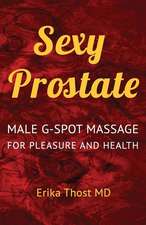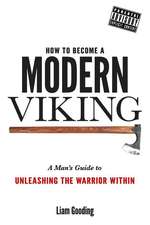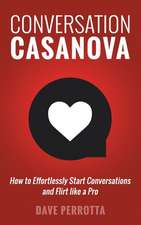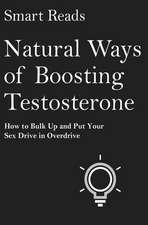Hair!: Mankind's Historic Quest to End Baldness
Autor Gersh Kuntzmanen Limba Engleză Paperback – 31 mar 2001
Throughout the centuries, Man (not his real name) has tried everything to hide, treat and repair baldness, as well as a host of nostrums designed to coax hair growth from the scalp (or, at least, money from the wallets of unsuspecting baldies). Yet we stand on the brink of a truly historic epoch: Two drugs are now federally approved remedies for baldness and more are on the way while surgical techniques continue to improve, and even hairpieces are becoming acceptable again. Will baldness, the stigma it carries, and the profound psychological toll it takes on men soon be things of the past? Will bald men someday be electable? Are these even rhetorical questions?
Gersh Kuntzman takes you from the laboratories of Merck, maker of Propecia, to the operating rooms of the nation's best hair-transplant surgeons, to the rug men working on the cutting edge of artificial hair design. Hair! covers baldness like nothing before.
Preț: 87.84 lei
Nou
Puncte Express: 132
Preț estimativ în valută:
16.81€ • 17.55$ • 13.88£
16.81€ • 17.55$ • 13.88£
Carte disponibilă
Livrare economică 25 martie-08 aprilie
Preluare comenzi: 021 569.72.76
Specificații
ISBN-13: 9780812991581
ISBN-10: 0812991583
Pagini: 192
Dimensiuni: 142 x 221 x 13 mm
Greutate: 0.26 kg
Editura: Random House Crown
ISBN-10: 0812991583
Pagini: 192
Dimensiuni: 142 x 221 x 13 mm
Greutate: 0.26 kg
Editura: Random House Crown
Notă biografică
Gersh Kuntzman has been a New York newspaperman for more than a decade, most recently as a reporter and columnist for The New York Post. Kuntzman’s weekly column, MetroGnome, roots out the quirky underside of New York life.
Extras
Chapter 1
"A CURIOUS KIND OF PREJUDICE": THE PSYCHOLOGY OF BALDNESS
"Although the constitution makes no mention of it, it would appear that fat people are now effectively excluded from running for high political office. Probably bald people as well."
-Neil Postman, 1985
On the wall of an examination room in the office of New York hair transplantation surgeon Dr. Michael Reed, strewn among his diplomas, medical society membership plaques and a certificate from a successfully completed liposuction workshop, is a framed passage from the Bible.
Seeing two verses from chapter two of the second Book of Kings on the wall of a cosmetic surgeon is somewhat startling-until it's put in proper context.
In the chapter, God tells the prophet Elijah that He (God) is taking him (Elijah) up to heaven. Hearing the news, the great prophet picks his friend Elisha as his successor (no doubt because the similarity in names would avoid confusion among the masses), and the two embark on a valedictory tour through Gilgal and Jericho. At the border with Jordan, Elijah parts the waters and the two continue on.
Neither man, the record states clearly, discusses his hair in any manner, although Elisha was, as we will find out later, bald.
After Elijah and Elisha arrive in Jordan, God sends a chariot of fire drawn by horses of fire to deliver his faithful prophet to heaven in a whirlwind, leaving the baldheaded Elisha to plot his next move. He quickly parts the waters and walks back to Jericho, a hardly subtle way of saying "I'm the man now."
"The spirit of Elijah," the Bible tells us, "doth rest on Elisha."
Yet he was, the record states clearly, still bald.
Anyone who could part the waters and be fully accepted by his people as Elijah's successor (despite the total lack of democracy in the selection process) should have other things on his mind than his balding pate. But Elisha was a man like any other man.
And this is hair loss we're talking about.
After tarrying a bit in Jericho and miraculously replenishing the town's barren soil (he really was the Man), Elisha decides to leave the city, employing that classic show-biz strategy of leaving the people wanting more.
But on his way out of town, he runs into several children who mock him. Rather than turn the other cheek (hey, this is the Old Testament, remember), Elisha becomes consumed by his anger at being teased by the children.
And that is the subject of the framed passage on Reed's wall. In it, Elisha quickly violates the third and sixth commandments-Thou shalt not take the name of the Lord in vain, and Thou shalt not dispatch wild animals to tear apart a few wiseass kids:
And as he was going up by the way, there came forth little children out of the city, and mocked him, and said unto him, "Go up, you bald head! Go up, you bald head!" And he turned back, and looked on them and cursed them in the name of the Lord. And two she-bears came out of the wood and mauled forty-two of them.
The biblical passage on Reed's office wall has a dual purpose. Of course it satirizes male vanity, but at the same time it also reassures Reed's bald patients that their obsession with hair is no mere symptom of today's orgiastic celebration of youth, but an ancient and still unresolved anxiety. While Reed's patients might choose a different method of retribution, they clearly see a small piece of themselves-successful, mature, adult men-standing on the roadside like Elisha, mocked for something completely outside of their control. Studies show, after all, that 60 percent of all bald men are teased at some point in their lives.
And, more important, the passage shows them that they are not alone: Baldness has been causing self-image problems for a long, long time.
In fact, the Bible, whose persistent refrain seems to be "Hair is good, bald is bad," plays a huge role in validating the prejudices of the nonbald [http://www.bible.org].
Take the much-cited Samson and Delilah story, the most high-profile example of biblical hair-ism. It is more than just a parable about betrayal and a strong statement about male virility. In fact, it's practically a commercial for Propecia.
In the story, an angel of the Lord comes down to Manoah and tells him that his barren wife will soon bear him a son who will "deliver Israel out of the hand of the Philistines."
Not a bad deal, but there's only one catch: "No razor shall come on his head," lest the boy lose his powers.
Everything goes according to plan; Samson slays a thousand Philistines with the jawbone of an ass and prepares to slay more when he meets Delilah, a harlot working the backrooms of Gaza. He falls for her like the mighty walls of Jericho, but she's a Philistine double agent and tricks him into revealing the source of his power (wow, the Good Book really is a good book).
"If I be shaven, then my strength will go from me and I shall become weak, and be like any other man," Samson tells Delilah in a moment of affection (for which he had, no doubt, paid in advance).
The rest, as they say, is the history of bald prejudice. But the Bible is only the jumping-off point. History shows us that hair has always been a powerful tool of subjugation and humiliation.
Roman obsession with hair nearly equaled our own-and like today, baldness was considered a scourge. Caesar, appalled that his naked pate projected an image of frailty, concealed his own baldness by combing his remaining strands forward, the antecedent of the classic comb-over that torments us to this day. Roman historian Suetonius captured it best when he declared Caesar a "dandy" and described his gratuitous use of laurel wreaths to cover his head.
"Of all the honors voted him by the Senate and People, none pleased him so much as the privilege of wearing a laurel wreath on all occasions," the historian wrote. "He constantly took advantage of it."
Of course, there was no end to the list of Roman "cures" for the blight, including pomades made out of hippo fat, salves containing the urine of young foals and liniments of sulfur and tar.
The Roman obsession with hair gave first-century satirist Martial (think of him as Tom Wolfe in a toga) a lot of material with which to work. The Spanish-born poet, who is best known for his twelve-volume collection of witty and deeply cynical epigrams, offered a condemnation of a Roman nobleman's futile efforts to conceal his baldness with a comb-over that could've been written (minus the flowery prose) today:
From the one side and the other, you gather up your scanty locks and you cover, Marius, the wide expanse of your shining bald scalp with the hair from both sides of your head. But blown about, they come back at the bidding of the wind and return to themselves and gird your bare poll with big curls on the side and on that . . . Will you please, in simpler fashion, confess yourself old, so as after all to appear as a bald person. Nothing is more unsightly than a bald man covered with hair.
What Martial failed to take into account, of course, was what it felt like to be bald in a society that despised baldness. It was bad enough being a slave in those times, but if you were a bald slave (talk about a double whammy!), you were believed to be fit only to clean toilets, stables and street gutters. Prisoners, adulteresses and traitors were typically shaved to heighten their humiliation, a practice that the French revived for Nazi collaborators during World War II.
And history has shown us-whether among the Maccabees in the Bible, the Visigoths in the fourth century or Native American cultures more recently-that there's no better way to humiliate your vanquished foe than to slice off his hair or even scalp as a trophy. (As a badge of courage, many Native American warriors purposely left the frontal forelock on an otherwise shaved head, the better to facilitate the scalping should they be defeated in battle.)
You can try to put a positive spin on it-as the military does by making the bald head a symbol of obedience or as monks do by making the tonsure a sign of servitude to God-but baldness has never looked good to the wider society at large.
Face it, monks don't get dates.
Lest you doubt the weight of history that is carried on the back of every bald man, dozens of recent studies confirm that women and men typically prejudge the hairless as weaker, less potent, less friendly, older and, in one study, less "good"-especially when it comes to the all-important first impression.
"Bald or balding men may be disadvantaged in initial interactions, which may affect their social experiences and quality of life," said Thomas Cash, a psychology professor at Old Dominion University, who has studied the psychological impact of baldness for years [http://www.body-images.com/main.html].
University of Pennsylvania dermatologist Albert Kligman goes further: "Consider the consequences for a young woman whose hair has thinned out substantially by the age of twenty-five years. Can anyone doubt that this may seriously hurt her chances for dates and mates, for jobs, for achieving self-confidence-and so on, endlessly? . . . Those who are less beautiful or even unattractive are disadvantaged in virtually all human interactions."
Defying the stereotype that men are supposed to be Stoics about personal appearance and leave such frivolity to the fairer sex, bald men will often describe in painful detail their lives without hair: the teasing, the bad job interviews, the declining self-image.
"Maybe it's just middle-aged male vanity," joked Stewart, a fifty-one-year-old salesman I met in the office of New Jersey transplant surgeon Robert Bernstein [http://www.800newhair.com]. Stewart relaxed comfortably in a dentist-style chair moments before Bernstein was to carve out a swath of his scalp, dissect the thin pelt into individual hair units and then transplant the hairs into one thousand holes punched into Stewart's balding areas.
"I just know that I don't feel as good about myself as I was feeling when I had a full head of hair," Stewart said.
For "Carl" (not his real name), the problem on the top of his head went much farther down his body.
"I just don't feel like a man without my hair," he said while awaiting an appointment to get his hairpiece serviced at Penthouse
for Hair Recovery, a locker-room-style hair salon for men who need a toupee and a reassuring slap on the ol' keyster [http://www
.penthousehair.com]. "When I went bald, I wasn't the man I used to be."
Naturally, academics have done countless studies to put such real emotions into hard-and-fast scientific jargon.
In a 1971 study, for example, people were asked to look at random sketches of men and then asked to rate each man based on their all-critical first impression. The bald men were rated as the most unkind, ugly, hard and "bad." Men with hair were seen as more handsome, virile and active. Men with hair were also deemed "good."
One of my favorite studies-an examination of the perceived link between a man's hairiness and the length of his penis-shows that the notion of bald men as impotent losers is not something invented by the George Costanza character on Seinfeld.
In J. S. Verinis's study-aptly named "The Hairiness and Large Penis Stereotypes"-thirty-six male and twenty-four female college students were shown slides of a hairy and hairless arm, a hairy and hairless chest, a large penis and a small penis and were asked to rate the slides in adjectival pairs such as "good/bad," "kind/cruel," "virile/
impotent," "strong/weak," etc.
Across the board, the hairy arm, hairy chest and long penis were seen as more masculine, more virile and stronger.
Verinis's conclusion: "Both men and women subscribe to this hairiness myth." My conclusion: "Hair makes the man."
Such studies launched an entirely new field of psychotherapy (and, of course, a new name for the new field): the study of the so-called physical attractiveness phenomenon.
Thomas Cash has made a good living studying the phenomenon-and has thrown good grant money after bad to conclude that people tend to find bald people less attractive.
Cash's 1988 study, for example, asked three groups of people-young college students, slightly older Old Dominion staffers and aging faculty members-to look at slides of bald and haired men. No one in the study was told why he or she was looking at these particular pictures, but was asked to rate the person in each slide for qualities such as self-assertiveness, social attractiveness, intelligence, life success, personal likability, physical attractiveness and perceived age.
Guess what? "The bald or balding models were perceived more negatively on every dimension except intelligence," Cash wrote. The study confirmed "a generally deleterious social stereotype of balding. Hair loss produced social judgments of lower aesthetic appeal and fostered less favorable initial assumptions about what the men were really like. Therefore, their lives were assumed to be less happy and successful. Both men and women expected the balding men to be less personally likable than the nonbalding controls."
University of Michigan professor Daniel Moerman did his own version of the study in 1988 (what, was grant money easy to come by then?), asking college students to look at two drawings of the same man-one with hair and one without-and give their impressions.
"The data indicate the existence of a curious kind of prejudice in our society," Moerman wrote. Across the board, the students thought that the bald subject was more intelligent, but considered the man with hair to be more attractive, more agreeable and younger.
"An opinion as to whether a person is agreeable or intelligent cannot be truly formulized until after direct interaction with the person," Moerman stressed. "The respondents in this experiment, however, were willing to predict that people would be more or less so after simply looking at a drawing."
And what they predicted was that men with hair, to put it in terms that one would hear on a college campus, are hotties and men without hair are, sigh, stable.
Researchers call this the "What is beautiful is good" syndrome-and even though it's been ingrained in our collective psyche since prehistoric times (from the cave paintings to Charlie's Angels), academics never stop writing about it.
"Physical attractiveness serves as an informational cue to infer extensive information about a person," psychologist Gordon Patzer wrote a decade ago.
"Consistently in our society, persons of lower physical attractiveness are associated with negative or undesirable characteristics, whereas their counterparts are associated with positive characteristics. People will adamantly state that another person's physical attractiveness has no effect on them, their perceptions, or their behavior; however, controlled observations reveal that people drastically underestimate the influence physical attractiveness has on them."
"A CURIOUS KIND OF PREJUDICE": THE PSYCHOLOGY OF BALDNESS
"Although the constitution makes no mention of it, it would appear that fat people are now effectively excluded from running for high political office. Probably bald people as well."
-Neil Postman, 1985
On the wall of an examination room in the office of New York hair transplantation surgeon Dr. Michael Reed, strewn among his diplomas, medical society membership plaques and a certificate from a successfully completed liposuction workshop, is a framed passage from the Bible.
Seeing two verses from chapter two of the second Book of Kings on the wall of a cosmetic surgeon is somewhat startling-until it's put in proper context.
In the chapter, God tells the prophet Elijah that He (God) is taking him (Elijah) up to heaven. Hearing the news, the great prophet picks his friend Elisha as his successor (no doubt because the similarity in names would avoid confusion among the masses), and the two embark on a valedictory tour through Gilgal and Jericho. At the border with Jordan, Elijah parts the waters and the two continue on.
Neither man, the record states clearly, discusses his hair in any manner, although Elisha was, as we will find out later, bald.
After Elijah and Elisha arrive in Jordan, God sends a chariot of fire drawn by horses of fire to deliver his faithful prophet to heaven in a whirlwind, leaving the baldheaded Elisha to plot his next move. He quickly parts the waters and walks back to Jericho, a hardly subtle way of saying "I'm the man now."
"The spirit of Elijah," the Bible tells us, "doth rest on Elisha."
Yet he was, the record states clearly, still bald.
Anyone who could part the waters and be fully accepted by his people as Elijah's successor (despite the total lack of democracy in the selection process) should have other things on his mind than his balding pate. But Elisha was a man like any other man.
And this is hair loss we're talking about.
After tarrying a bit in Jericho and miraculously replenishing the town's barren soil (he really was the Man), Elisha decides to leave the city, employing that classic show-biz strategy of leaving the people wanting more.
But on his way out of town, he runs into several children who mock him. Rather than turn the other cheek (hey, this is the Old Testament, remember), Elisha becomes consumed by his anger at being teased by the children.
And that is the subject of the framed passage on Reed's wall. In it, Elisha quickly violates the third and sixth commandments-Thou shalt not take the name of the Lord in vain, and Thou shalt not dispatch wild animals to tear apart a few wiseass kids:
And as he was going up by the way, there came forth little children out of the city, and mocked him, and said unto him, "Go up, you bald head! Go up, you bald head!" And he turned back, and looked on them and cursed them in the name of the Lord. And two she-bears came out of the wood and mauled forty-two of them.
The biblical passage on Reed's office wall has a dual purpose. Of course it satirizes male vanity, but at the same time it also reassures Reed's bald patients that their obsession with hair is no mere symptom of today's orgiastic celebration of youth, but an ancient and still unresolved anxiety. While Reed's patients might choose a different method of retribution, they clearly see a small piece of themselves-successful, mature, adult men-standing on the roadside like Elisha, mocked for something completely outside of their control. Studies show, after all, that 60 percent of all bald men are teased at some point in their lives.
And, more important, the passage shows them that they are not alone: Baldness has been causing self-image problems for a long, long time.
In fact, the Bible, whose persistent refrain seems to be "Hair is good, bald is bad," plays a huge role in validating the prejudices of the nonbald [http://www.bible.org].
Take the much-cited Samson and Delilah story, the most high-profile example of biblical hair-ism. It is more than just a parable about betrayal and a strong statement about male virility. In fact, it's practically a commercial for Propecia.
In the story, an angel of the Lord comes down to Manoah and tells him that his barren wife will soon bear him a son who will "deliver Israel out of the hand of the Philistines."
Not a bad deal, but there's only one catch: "No razor shall come on his head," lest the boy lose his powers.
Everything goes according to plan; Samson slays a thousand Philistines with the jawbone of an ass and prepares to slay more when he meets Delilah, a harlot working the backrooms of Gaza. He falls for her like the mighty walls of Jericho, but she's a Philistine double agent and tricks him into revealing the source of his power (wow, the Good Book really is a good book).
"If I be shaven, then my strength will go from me and I shall become weak, and be like any other man," Samson tells Delilah in a moment of affection (for which he had, no doubt, paid in advance).
The rest, as they say, is the history of bald prejudice. But the Bible is only the jumping-off point. History shows us that hair has always been a powerful tool of subjugation and humiliation.
Roman obsession with hair nearly equaled our own-and like today, baldness was considered a scourge. Caesar, appalled that his naked pate projected an image of frailty, concealed his own baldness by combing his remaining strands forward, the antecedent of the classic comb-over that torments us to this day. Roman historian Suetonius captured it best when he declared Caesar a "dandy" and described his gratuitous use of laurel wreaths to cover his head.
"Of all the honors voted him by the Senate and People, none pleased him so much as the privilege of wearing a laurel wreath on all occasions," the historian wrote. "He constantly took advantage of it."
Of course, there was no end to the list of Roman "cures" for the blight, including pomades made out of hippo fat, salves containing the urine of young foals and liniments of sulfur and tar.
The Roman obsession with hair gave first-century satirist Martial (think of him as Tom Wolfe in a toga) a lot of material with which to work. The Spanish-born poet, who is best known for his twelve-volume collection of witty and deeply cynical epigrams, offered a condemnation of a Roman nobleman's futile efforts to conceal his baldness with a comb-over that could've been written (minus the flowery prose) today:
From the one side and the other, you gather up your scanty locks and you cover, Marius, the wide expanse of your shining bald scalp with the hair from both sides of your head. But blown about, they come back at the bidding of the wind and return to themselves and gird your bare poll with big curls on the side and on that . . . Will you please, in simpler fashion, confess yourself old, so as after all to appear as a bald person. Nothing is more unsightly than a bald man covered with hair.
What Martial failed to take into account, of course, was what it felt like to be bald in a society that despised baldness. It was bad enough being a slave in those times, but if you were a bald slave (talk about a double whammy!), you were believed to be fit only to clean toilets, stables and street gutters. Prisoners, adulteresses and traitors were typically shaved to heighten their humiliation, a practice that the French revived for Nazi collaborators during World War II.
And history has shown us-whether among the Maccabees in the Bible, the Visigoths in the fourth century or Native American cultures more recently-that there's no better way to humiliate your vanquished foe than to slice off his hair or even scalp as a trophy. (As a badge of courage, many Native American warriors purposely left the frontal forelock on an otherwise shaved head, the better to facilitate the scalping should they be defeated in battle.)
You can try to put a positive spin on it-as the military does by making the bald head a symbol of obedience or as monks do by making the tonsure a sign of servitude to God-but baldness has never looked good to the wider society at large.
Face it, monks don't get dates.
Lest you doubt the weight of history that is carried on the back of every bald man, dozens of recent studies confirm that women and men typically prejudge the hairless as weaker, less potent, less friendly, older and, in one study, less "good"-especially when it comes to the all-important first impression.
"Bald or balding men may be disadvantaged in initial interactions, which may affect their social experiences and quality of life," said Thomas Cash, a psychology professor at Old Dominion University, who has studied the psychological impact of baldness for years [http://www.body-images.com/main.html].
University of Pennsylvania dermatologist Albert Kligman goes further: "Consider the consequences for a young woman whose hair has thinned out substantially by the age of twenty-five years. Can anyone doubt that this may seriously hurt her chances for dates and mates, for jobs, for achieving self-confidence-and so on, endlessly? . . . Those who are less beautiful or even unattractive are disadvantaged in virtually all human interactions."
Defying the stereotype that men are supposed to be Stoics about personal appearance and leave such frivolity to the fairer sex, bald men will often describe in painful detail their lives without hair: the teasing, the bad job interviews, the declining self-image.
"Maybe it's just middle-aged male vanity," joked Stewart, a fifty-one-year-old salesman I met in the office of New Jersey transplant surgeon Robert Bernstein [http://www.800newhair.com]. Stewart relaxed comfortably in a dentist-style chair moments before Bernstein was to carve out a swath of his scalp, dissect the thin pelt into individual hair units and then transplant the hairs into one thousand holes punched into Stewart's balding areas.
"I just know that I don't feel as good about myself as I was feeling when I had a full head of hair," Stewart said.
For "Carl" (not his real name), the problem on the top of his head went much farther down his body.
"I just don't feel like a man without my hair," he said while awaiting an appointment to get his hairpiece serviced at Penthouse
for Hair Recovery, a locker-room-style hair salon for men who need a toupee and a reassuring slap on the ol' keyster [http://www
.penthousehair.com]. "When I went bald, I wasn't the man I used to be."
Naturally, academics have done countless studies to put such real emotions into hard-and-fast scientific jargon.
In a 1971 study, for example, people were asked to look at random sketches of men and then asked to rate each man based on their all-critical first impression. The bald men were rated as the most unkind, ugly, hard and "bad." Men with hair were seen as more handsome, virile and active. Men with hair were also deemed "good."
One of my favorite studies-an examination of the perceived link between a man's hairiness and the length of his penis-shows that the notion of bald men as impotent losers is not something invented by the George Costanza character on Seinfeld.
In J. S. Verinis's study-aptly named "The Hairiness and Large Penis Stereotypes"-thirty-six male and twenty-four female college students were shown slides of a hairy and hairless arm, a hairy and hairless chest, a large penis and a small penis and were asked to rate the slides in adjectival pairs such as "good/bad," "kind/cruel," "virile/
impotent," "strong/weak," etc.
Across the board, the hairy arm, hairy chest and long penis were seen as more masculine, more virile and stronger.
Verinis's conclusion: "Both men and women subscribe to this hairiness myth." My conclusion: "Hair makes the man."
Such studies launched an entirely new field of psychotherapy (and, of course, a new name for the new field): the study of the so-called physical attractiveness phenomenon.
Thomas Cash has made a good living studying the phenomenon-and has thrown good grant money after bad to conclude that people tend to find bald people less attractive.
Cash's 1988 study, for example, asked three groups of people-young college students, slightly older Old Dominion staffers and aging faculty members-to look at slides of bald and haired men. No one in the study was told why he or she was looking at these particular pictures, but was asked to rate the person in each slide for qualities such as self-assertiveness, social attractiveness, intelligence, life success, personal likability, physical attractiveness and perceived age.
Guess what? "The bald or balding models were perceived more negatively on every dimension except intelligence," Cash wrote. The study confirmed "a generally deleterious social stereotype of balding. Hair loss produced social judgments of lower aesthetic appeal and fostered less favorable initial assumptions about what the men were really like. Therefore, their lives were assumed to be less happy and successful. Both men and women expected the balding men to be less personally likable than the nonbalding controls."
University of Michigan professor Daniel Moerman did his own version of the study in 1988 (what, was grant money easy to come by then?), asking college students to look at two drawings of the same man-one with hair and one without-and give their impressions.
"The data indicate the existence of a curious kind of prejudice in our society," Moerman wrote. Across the board, the students thought that the bald subject was more intelligent, but considered the man with hair to be more attractive, more agreeable and younger.
"An opinion as to whether a person is agreeable or intelligent cannot be truly formulized until after direct interaction with the person," Moerman stressed. "The respondents in this experiment, however, were willing to predict that people would be more or less so after simply looking at a drawing."
And what they predicted was that men with hair, to put it in terms that one would hear on a college campus, are hotties and men without hair are, sigh, stable.
Researchers call this the "What is beautiful is good" syndrome-and even though it's been ingrained in our collective psyche since prehistoric times (from the cave paintings to Charlie's Angels), academics never stop writing about it.
"Physical attractiveness serves as an informational cue to infer extensive information about a person," psychologist Gordon Patzer wrote a decade ago.
"Consistently in our society, persons of lower physical attractiveness are associated with negative or undesirable characteristics, whereas their counterparts are associated with positive characteristics. People will adamantly state that another person's physical attractiveness has no effect on them, their perceptions, or their behavior; however, controlled observations reveal that people drastically underestimate the influence physical attractiveness has on them."




















